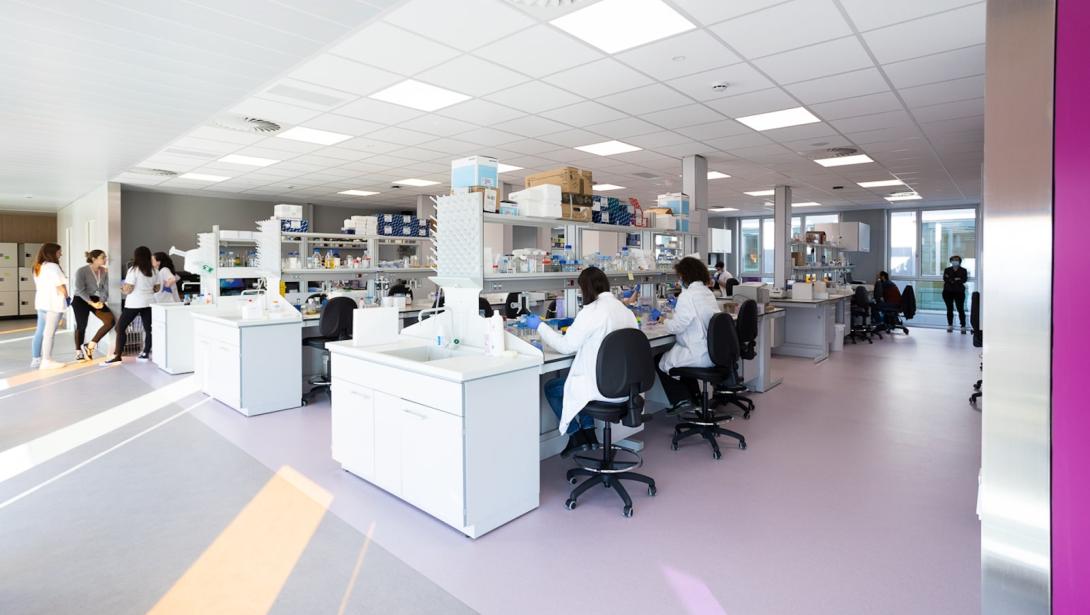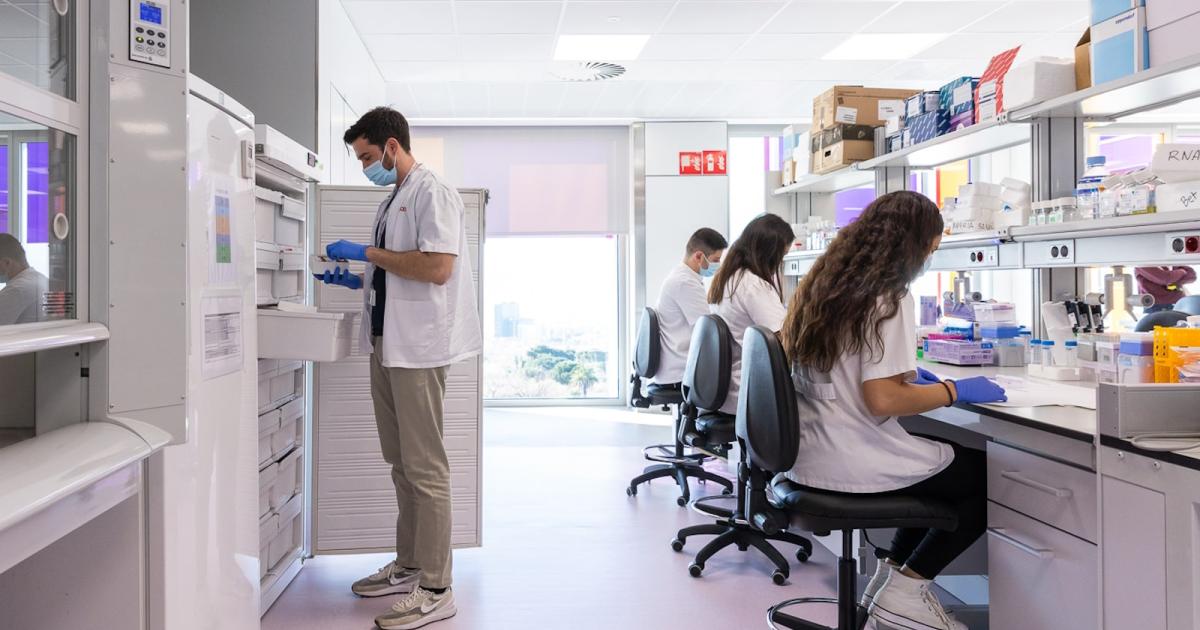
The inauguration of the new facilities, located in the SJD Pediatric Cancer Center Barcelona, coincides with the 20th anniversary of the centre’s opening, and was made possible thanks to donations from the "la Caixa" Foundation, patient associations and from wider society
The SJD Pediatric Cancer Center Barcelona at the SJD Barcelona Children's Hospital has inaugurated their new facilities in the Pediatric Cancer Research Unit – CaixaResearch. The new space has received three million Euros of funding from the "la Caixa" Foundation, as well as other donations made by families of patients and other entities from wider society through several fundraising events.
The new facility boasts 1,112 square metres worth of space, and has two distinct departments: a molecular diagnostics laboratory, and also a space dedicated to research and investigation. ‘At first, molecular studies on tumours were only done in very specific cases, and more for research reasons than for care reasons. Now, however, we do it every time because tumour molecular diagnostics is essential to be able to prognose tumour evolution and figure out the most suitable treatment for the child. This is known as precision, or personalised, medicine. It's a part of standard treatment,’ highlights Jaume Mora, Scientific Director of the SJD Pediatric Cancer Center.
In the research lab, a team of 50 researchers focuses on the study of a wide range of pediatric tumors: neuroblastoma; medulloblastoma; retinoblastoma; Ewing sarcoma; diffuse brain stem glioma, or DIPG; high-grade pediatric glioma; rhabdomyosarcoma; osteosarcoma; leukemia; vascular tumours; histiocytosis and low-grade gliomas.
These new facilities are being opened on the 20th anniversary of the creation of the original lab, which was founded in 2003 and has grown over time thanks to donations from the public. ‘Research into pediatric cancers has been funded by charitable donations,’ explains Jaume Mora, promoter and director of the laboratory. ‘In those days, there were no procedures for finding research donors in Spain. We started doing so because pediatric oncology, like many other rare diseases, sparks little interest in the industry and attracts little public support. We started going door-to-door explaining why it was necessary and now it's an everyday concept.’
That is how the Pediatric Oncology Lab has grown exponentially: through donations from the public. At present, 75% of the over three million Euros’ worth of donations that goes towards pediatric research each year at the SJD Barcelona Children's Hospital—permitting dozens of lines of research to be opened—comes from donations from the public.
Key advancements over two decades of pediatric cancer research
Some of the research carried out over the last two decades by the team at the Pediatric Oncology Lab at the SJD Barcelona Children's Hospital has managed to improve diagnosis of some cancer types, allowing us to personalise treatment. In practice, this progress has meant there are children who can be successfully treated without needing chemotherapy, and others—who have very aggressive tumours—that can be treated with personalised, targeted therapies chosen as per the molecular specificities of the tumour.
A clear example is in neuroblastoma cases, which is a tumour that originates in immature peripheral nervous system cells. In the beginning, the first team to start working at the SJD Pediatric Oncology Lab focused their research on this type of tumour, as it is the most frequent in the first five years of life.
In 2012, this team identified several genetic markers which allowed them to predict the aggressiveness of the neuroblastoma immediately after diagnosis, within 24 hours. This information is key because it has made it possible that, now, half of patients diagnosed with a neuroblastoma overcome the disease with surgery alone, without having to undergo chemotherapy or radiotherapy.
At the same time, researchers at the SJD Barcelona Children's Hospital have taken part in a clinical trial on immunotherapy treatment for high-risk neuroblastomas, which has significantly improved survival rates (from 35% to 75%). Created at the Memorial Sloan Kettering Cancer Center in New York, and developed by a company founded by the father of an American patient, this monoclonal antibody (Naxitamab) was used for the first time ever worldwide in 2017 on a patient at the SJD Barcelona Children's Hospital. Naxitamab has already been used in more than 200 cases around the globe.
Researchers at the SJD Barcelona Children's Hospital have also played a crucial role in treating retinoblastoma, or retinal cancer. For the first time anywhere in the world, an oncolytic virus has been developed in partnership with the biotechnology company VCN Biosciences, which has prevented three children from being left completely blind. The virus used is an adenovirus, or common virus, which is responsible for many of the symptoms of the common cold. It has been modified in the lab so that it can identify cancer cells, infect them and then replicate itself, meaning it can selectively attack cancer cells while sparing healthy cells.







